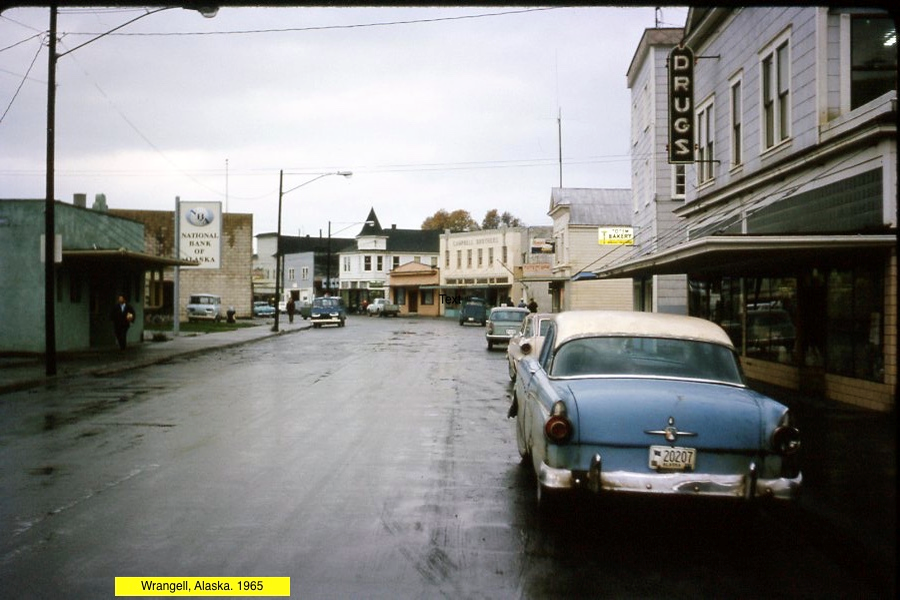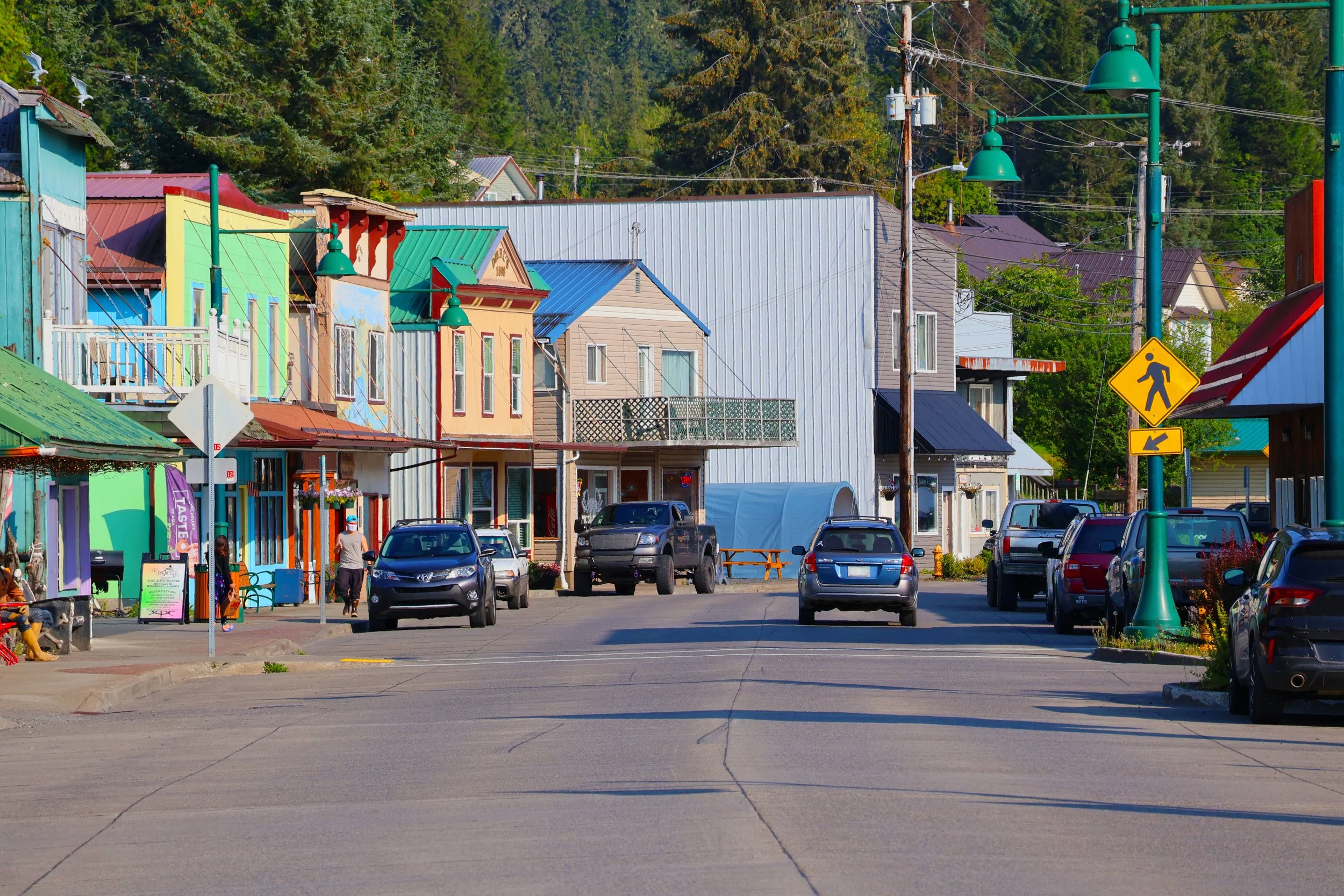Front Street
60 Years of Change in the Heart of Wrangell
Walk down Front Street today and you’ll find a mix of fishing gear, coffee shops, gift stores, and neighbors who still wave at every passing car. It’s where locals catch up and visitors figure out how Wrangell really works.
But roll the clock back 60 years and this same stretch of waterfront looked very different. In the pages of the Wrangell Sentinel, you’d find stories of bustling canneries, fishing vessels pulling into the harbor with massive amounts of fish and crab, hardware stores filled with lumberjacks and tradesmen, and headlines that captured a small town on the edge of change.
So, what’s changed? What’s the same? And why does Front Street still feel like the backbone of Wrangell?
Let’s take a look.
1965: Logging, Fishing, and a Whole Lot of Boots on the Street
In 1965, Wrangell was a hard-working town built on logging, fishing, and grit. Front Street was the commercial heart of the community, with sawdust underfoot, fishing gear stacked out front, and locals trading news over coffee at the lunch counter.
At the time, Wrangell had:
A lively harbor filled with commercial fishing boats and barges
Buness Bros. Hardware supplying the town with everything from nails to outboard engines
Benjamin’s Store, which would become Wrangell IGA Grocery Store and Deli.
Marine Bar and other watering holes serving loggers, longshoremen, and visiting fishermen
The town was still feeling the economic highs and lows of post-war Alaska, with a growing focus on timber, canneries, and marine industry. You’d hear CB radios buzzing, boats unloading salmon by the ton, and kids getting 10 cents for hauling groceries. Front Street was where everything happened.
2025: Coffee Shops, Tourism, and the Same Wrangell Spirit
Fast forward 60 years, Front Street is still the social and cultural core of Wrangell.
Now, you’ll find:
Coffee shops fueling morning routines
Local artists and shops selling handcrafted goods and Wrangell-made jewelry
Historic spots like Chief Shakes Island and Totem Park are just a short stroll away
And new stores that help supply everyday essentials and tools
Logging is no longer the driving economy, but Wrangell pride remains. While the canneries are a little quieter, the boats still go out. Fishing remains an economic factor for the town. However, the economy of Wrangell has turned towards the visitor industry. The summer season is filled with visitors from across the U.S and internationally, all coming to Wrangell to either boat up the Stikine River to sightsee among majestic mountains and glaciers, tour the Anan Wildlife Observatory to watch bears feast on salmon, or walk along Petroglyphs that tell centuries-old stories. Locals use the off-season to replenish their freezers, enjoy downtime with families, and prepare for another bustling season of activity.
Leaning on it’s maritime history, Wrangell is home to a world-class Marine Service Center that serves as a vital hub for vessel repair, haul-out, and upland storage. It was strategically located on the former mill site along the downtown waterfront and designed to support both commercial and recreational vessel owners with access to repair, maintenance, and upgrade services. Because of Wrangell’s location in Southeast Alaska, the Marine Service Center reflects its commitment to maintaining a year-round economy in marine trades, fisheries, and transportation.
Why It Matters
You don’t have to be a historian to see the history of Wrangell.
It remembers the fires that leveled downtown, the generations who rebuilt, the kids who grew up fishing off the docks, and the traditions that still anchor the town. Front Street isn’t just a few blocks of buildings. It’s where history walks alongside the everyday.
So, when you walk it now, past the Drug Store, Marine Service Center, Visitors Center, or that one bench everyone seems to know, you’re not just seeing a small town, you’re seeing a story that’s still being written.
Final Thoughts: Wrangell Has Always Done It Its Way
From 1965 to 2025, Wrangell has changed, but it is still the same town in more ways than one. Front Street is still the heart of the island, still where people meet, laugh, share stories, and make weekend plans.
It’s not polished. It’s not performative.
It’s just Wrangell. And always has been.
Explore Wrangell's past, present, and the places in between. Want to walk through 60 years of small-town Alaska in one afternoon? Start here.
Got a Front Street story from the past? We’d love to hear it. Email us at info@travelwrangell.com and help keep Wrangell’s history alive.
Also, special thanks Edward Galizia for providing photos and to Ronan Rooney from Wrangell History Unlocked for providing consultation on Wrangell’s history in 1965! Check out Ronan’s website on:



